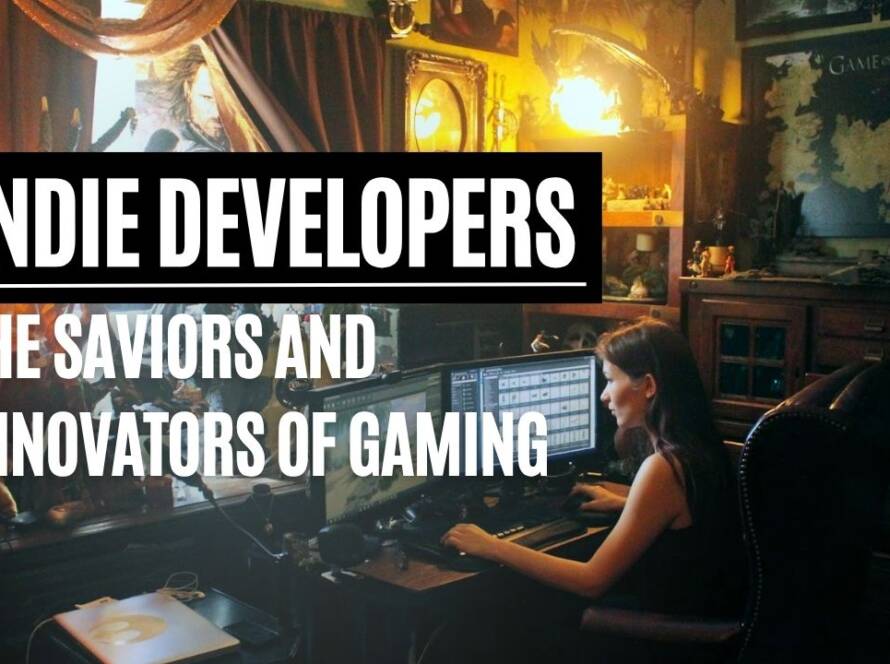Understanding Game Development Basics
Game development is a multifaceted process that encompasses various disciplines, each contributing to the final product’s success. At its core, game development combines programming, design, art, and sound, creating an interactive experience for players. Beginners must grasp these foundational elements before advancing to the practical aspects of game creation.
Programming is pivotal in game development, as it involves writing code that dictates how a game functions. This includes everything from character movements to artificial intelligence behaviors. Aspiring developers should familiarize themselves with programming languages commonly used in the industry, such as C#, C++, and Python, as well as game engines like Unity and Unreal Engine. Understanding programming provides a solid groundwork for building complex game mechanics.
Equally important are the design aspects, which encompass level design, game mechanics, and user experience. Game mechanics refer to the rules and systems that govern how players interact with the game environment. Effective game designers create engaging mechanics that not only challenge players but also enhance the overall gaming experience. Storytelling, another crucial element, allows developers to weave narratives that draw players in, making them emotionally invested in their adventures.
The artistic component of game development brings visual elements to life. This includes character design, environment art, and animations, all of which need to work cohesively to evoke the intended atmosphere. Sound design plays a significant role in enhancing immersion with sound effects, voice-overs, and music, further complementing the visual design.
By understanding these basic components, beginners can appreciate the complexity and creativity involved in game development. This knowledge serves as an essential foundation upon which practical skills can be built, ultimately leading to more refined and compelling gaming experiences.
Tools and Technologies for Aspiring Game Developers
As aspiring game developers embark on their journey in 2024, selecting the right tools and technologies is paramount for success. The landscape of game development is vast and encompasses numerous resources that cater to different levels of expertise and project scales. Two prominent game engines that stand out are Unity and Unreal Engine, both of which provide robust features for creating diverse types of games. Unity is particularly renowned for its user-friendly interface, which makes it an ideal choice for beginners. It supports C#, a programming language that is accessible for new developers. Conversely, Unreal Engine, utilizing C++, is favored for its superior graphic capabilities, making it a strong contender for projects focused on high-end visuals.
In addition to game engines, graphic design software plays a crucial role in the development process. Tools like Adobe Photoshop and Blender are invaluable for creating visual assets. Photoshop is particularly useful for 2D graphics, while Blender serves as an open-source 3D modeling tool, which is friendly for beginners and professionals alike. Both software options are also equipped with extensive online resources and communities, facilitating learning and troubleshooting.
Budget considerations are also a significant factor for beginners. There is a wealth of free resources available, such as Godot, an open-source game engine that simplifies the development process while still offering powerful features. Aspiring developers can also look into various online learning platforms that provide affordable courses on game development essentials, covering everything from coding to design. Furthermore, the rise of emerging trends, including virtual reality (VR) and augmented reality (AR), presents new opportunities for innovative gameplay experiences. Embracing these technologies can allow developers to stand out in the competitive gaming market.
Overall, selecting the appropriate tools and technologies not only enhances the development process but also aligns with individual project goals and budget constraints, laying a strong foundation for a rewarding journey in game development.
Learning Resources and Communities
As an aspiring game developer, access to effective learning resources is essential for building foundational knowledge and skills. In 2024, a plethora of online platforms offers courses tailored specifically for beginners. Websites such as Coursera, Udemy, and Khan Academy provide structured courses that range from introductory programming to advanced game design principles. Aspiring developers can select courses that are taught by industry professionals, ensuring they receive relevant and practical knowledge.
Books also play a significant role in the self-guided learning process. Classic texts, such as “The Art of Game Design: A Book of Lenses” by Jesse Schell, alongside more recent titles on Unity or Unreal Engine workflows, provide in-depth insights and practical exercises. A combination of online courses and literature creates a comprehensive learning environment where beginners can explore game development at their own pace.
Additionally, engaging with online communities can greatly enhance the learning experience. Platforms like Reddit host numerous subreddits dedicated to game development where beginners can discuss challenges, seek advice, and share their progress. In particular, communities on Discord facilitate real-time communication, allowing for instant feedback and collaborative projects among both newcomers and seasoned developers.
Forums and social media groups can be invaluable in fostering connections. Networking with other developers not only helps to clarify concepts but also opens opportunities for collaboration on projects, enhancing one’s practical skills. Constructive criticism from peers encourages improvement, making interaction a vital part of the skill acquisition process. The symbiotic relationship between learning resources and community engagement empowers novice developers to thrive in their journey, equipping them with the tools necessary for success in the dynamic field of game development.
Starting Your First Game Project: Tips and Tricks
When embarking on your first game development project, it is crucial to start small. Managing a project with a limited scope allows beginners to focus on essential elements such as gameplay mechanics, storytelling, and user interface design without feeling overwhelmed. Choose a simple game concept, like a puzzle or a platformer, that can be completed within a reasonable timeframe. This initial experience lays the groundwork for more complex projects in the future.
Iterative development is another essential approach for novice developers. By breaking down the project into smaller milestones, you can create a minimal viable product (MVP) that captures the core mechanics of your game. This allows for regular testing and feedback, enabling you to refine and improve the game incrementally. Additionally, iterative development helps to build your understanding of how different components work together, enhancing your overall game design skills.
Staying organized throughout the game development process cannot be overstated. Utilize project management tools or game development software that allows for task tracking and scheduling. Maintain clear documentation of your design decisions, code changes, and feedback from playtesting sessions. This practice not only provides you with a reference guide but also helps to keep your vision focused and on track.
Testing and refining your game is critical for ensuring a quality final product. Regularly playtest your game during development to identify potential mechanics that may need adjusting or areas where players might struggle. Seek external feedback from friends or fellow developers, as fresh perspectives can illuminate flaws you might otherwise overlook.
Finally, anticipate challenges that may arise during your project. Time management, technical bugs, and creative blocks are common hurdles for beginners. Embrace these challenges as learning opportunities and remain adaptable in your approach. With dedication and perseverance, you will find that embarking on your game development journey can be an incredibly rewarding experience.




